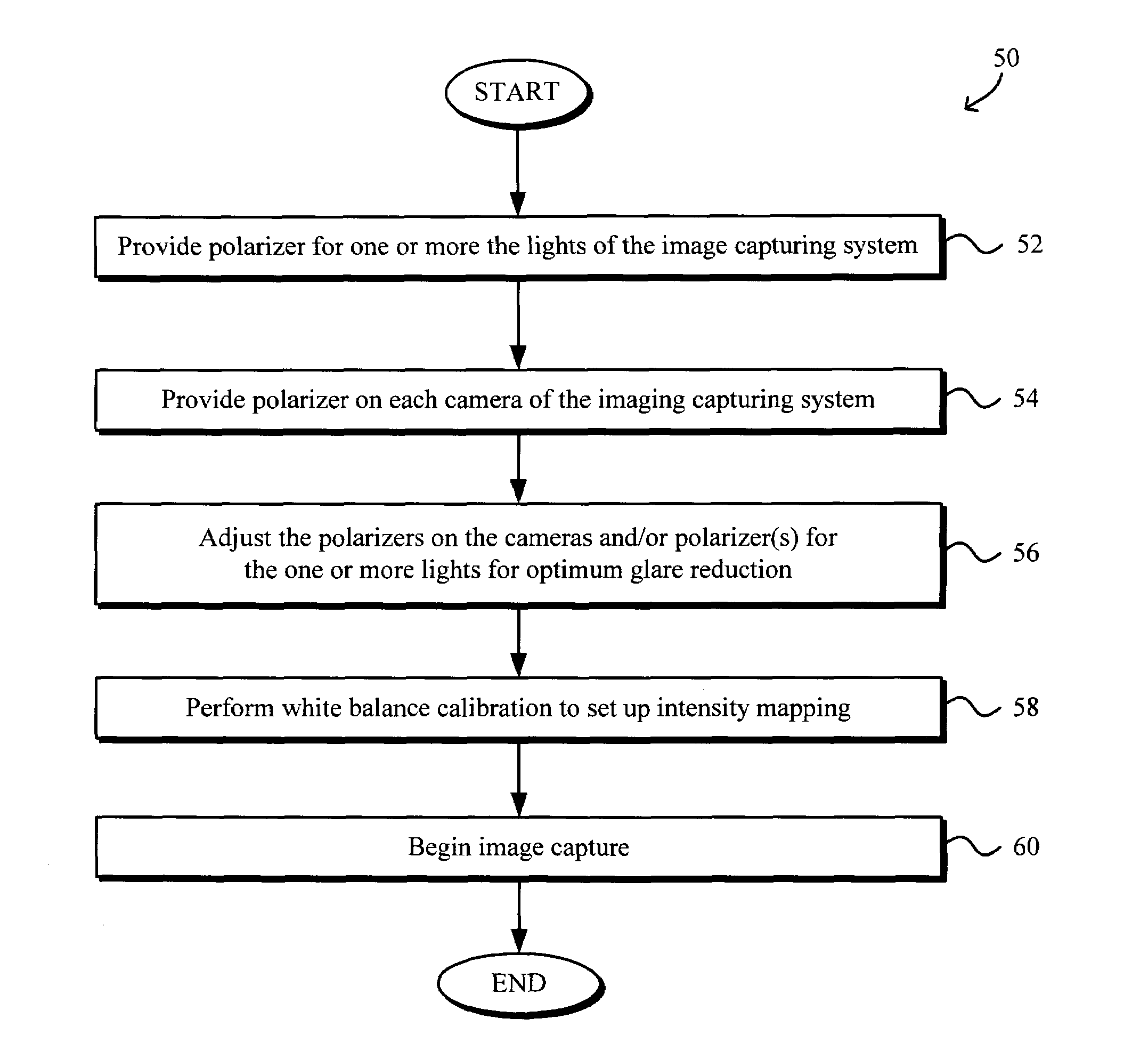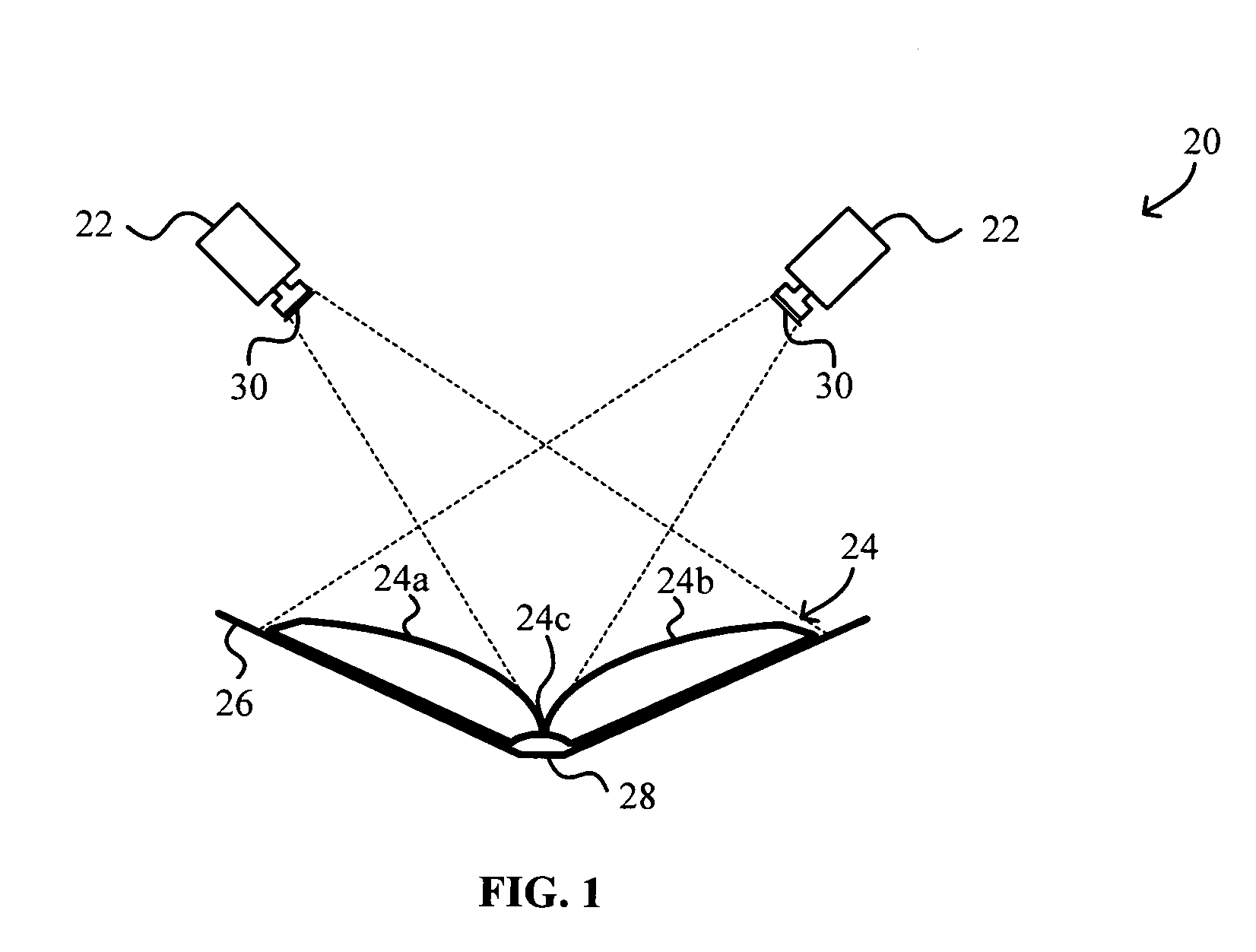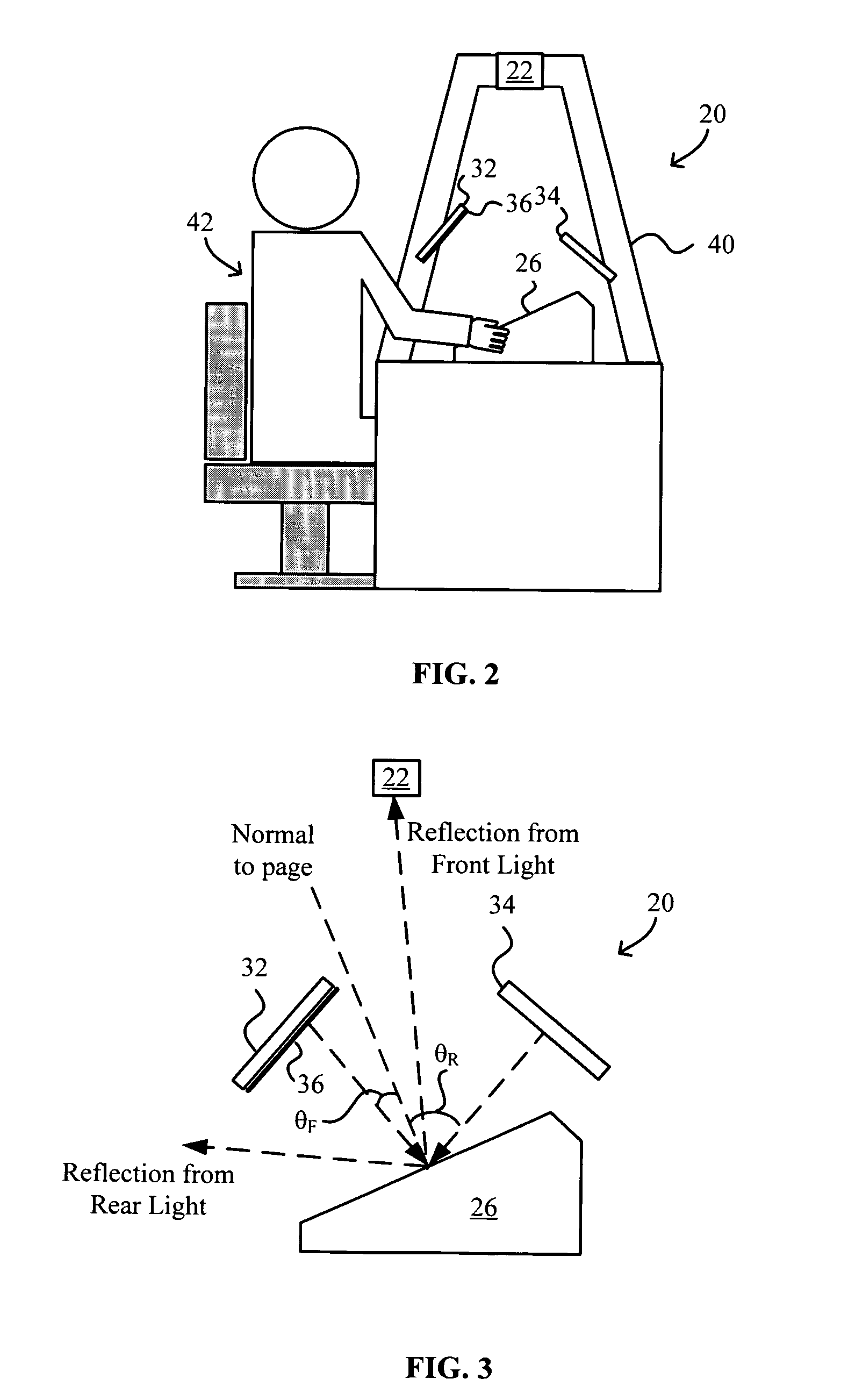Systems and methods for glare removal using polarized filtering in document scanning
a filtering system and document technology, applied in the field of scanning documents, can solve the problems of affecting the quality of document scanning, so as to facilitate the reduction of light reflections, facilitate blocking light reflections, and minimize reflections
- Summary
- Abstract
- Description
- Claims
- Application Information
AI Technical Summary
Benefits of technology
Problems solved by technology
Method used
Image
Examples
Embodiment Construction
[0021]Systems and methods using polarized filtering for glare removal to improve the process of scanning documents, particularly bound documents with glossy content, are disclosed. It is noted that although the systems and methods are well suited for imaging bound documents with glossy content as described in the examples presented herein, the systems and methods can similarly be adapted or utilized for unbound documents including large, fragile, and / or rare unbound documents. The following description is presented to enable any person skilled in the art to make and use the invention. Descriptions of specific embodiments and applications are provided only as examples and various modifications will be readily apparent to those skilled in the art. The general principles defined herein may be applied to other embodiments and applications without departing from the spirit and scope of the invention. Thus, the present invention is to be accorded the widest scope encompassing numerous alt...
PUM
 Login to View More
Login to View More Abstract
Description
Claims
Application Information
 Login to View More
Login to View More - R&D
- Intellectual Property
- Life Sciences
- Materials
- Tech Scout
- Unparalleled Data Quality
- Higher Quality Content
- 60% Fewer Hallucinations
Browse by: Latest US Patents, China's latest patents, Technical Efficacy Thesaurus, Application Domain, Technology Topic, Popular Technical Reports.
© 2025 PatSnap. All rights reserved.Legal|Privacy policy|Modern Slavery Act Transparency Statement|Sitemap|About US| Contact US: help@patsnap.com



